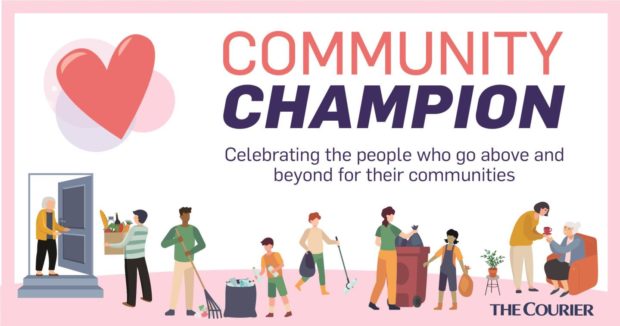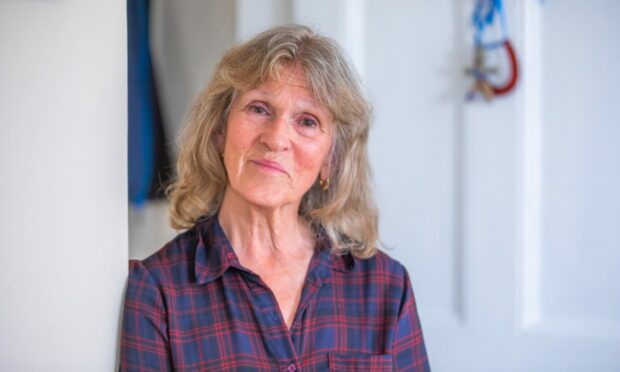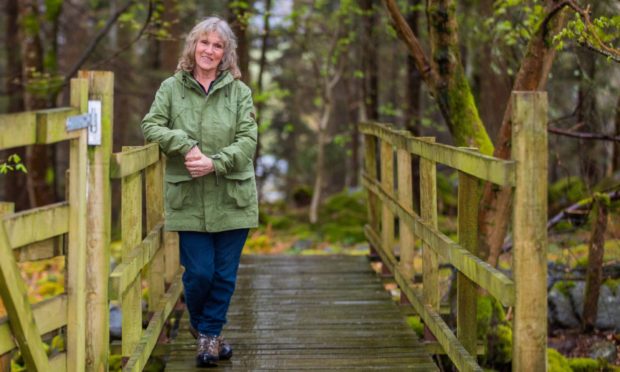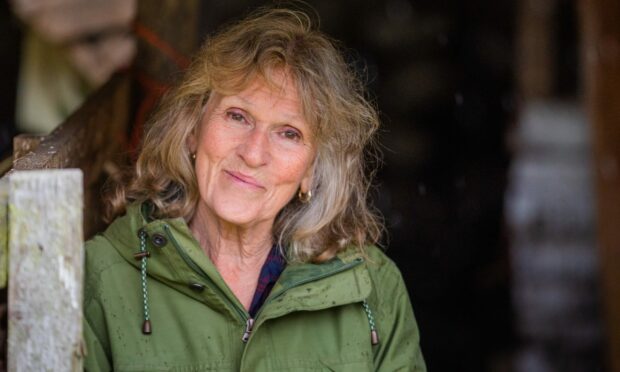Jess Smith spent much of her childhood living in a 1948 Bedford bus with her parents and her seven sisters.
The 73-year-old comes from a Travelling community and has continually strived to further understanding of Travellers.

Drawing on her own and her family’s experiences, Jess has authored numerous books highlighting what life is like for the Travelling community in Scotland: the challenges, the culture, how they learned about the ways of the world.
Now living just outside Comrie she has, through her own research, learned much more about some of the difficulties Travellers have faced not only in Perth and Kinross but throughout Scotland.
Education discrimination
“I have done what I have to highlight the Travelling culture,” she said.
“And to give young Travellers the chance to realise they are not any less of a person.”
Jess and her family know first-hand of the difficulties young travellers have had.
For her mother Jeannie, Jess and her sisters’ getting an education was imperative. “The lassies must have a decent education,” she often said.
The teachers wouldn’t teach the tinkers.”
Jess Smith
However, Travellers faced discrimination in schooling.
There were separate ‘Tinker’ schools set up after settled parents refused to allow their children to study alongside those from Travelling backgrounds.
One such school was Aldour Tinker School near Pitlochry.
Jess said: “I hadn’t heard of the Traveller school until one of my relatives told me about it. I thought it was just a primary school.
“But children of Travellers were sent to a different school.
“The teachers wouldn’t teach the tinkers so there was separation at schools.”
Jess’ own family experienced this discrimination in 1940 when her mother tried to enrol her sister at Pitlochry High School.
The school refused to accept her, saying she should instead attend Adlour School.
Impact on Travellers
A lack of societal understanding of Travellers has inevitably affected members of the Travelling community.
Jess says discrimination against them is generally accepted in society.
She said: “Racism is accepted when it is aimed at Travellers.
“So it is no wonder many of them don’t want to ‘admit’ to their culture.
“There are so many Travellers who are scared to go forward and pursue their dreams.
“There are not enough opportunities open to them.”
Verse and song
But for many Travellers, learning took the form of verse and song instead of the conventional pen and paper.
Jess said many Travellers do not have books growing up so everything is taught in verse and song.
She said wherever Travellers go, they learn about the history and culture of the area this way.
She added: “Many Travellers remember songs with 37 verses.”
Separation of families
“There was also the separation of children from their parents,” Jess added.
“My father Charlie Reilly was about seven years old when he saw a woman in Logierait having her three children taken from her by policemen.
“He said the woman was pleading with them and threw herself in front of the police.
“The woman was so upset that she later drowned herself in the River Tummel.”
Published author
When Jess’ father Charles Riley passed away in 1982, she made a silent promise to learn more about Travellers and their history and write a book.
Decades later, she is a published author of books informing readers of Travellers’ way of life, as well as an autobiographical trilogy on her own experiences.
Jess discusses life as a young Traveller, living in the Bedford bus with her family.
“We lived in a bus and when someone came to the door, we were told by my mother to hide under the covers,” she said.
She has since continued to advocate for greater understanding of Travellers and has inspired others to be proud of their heritage.
Jess reflected: “I hope I did right by my father in publishing my books.
“The worst thing we can do is hate our fellow man.
“It has been a brilliant journey for me and I am proud to share my history.”


